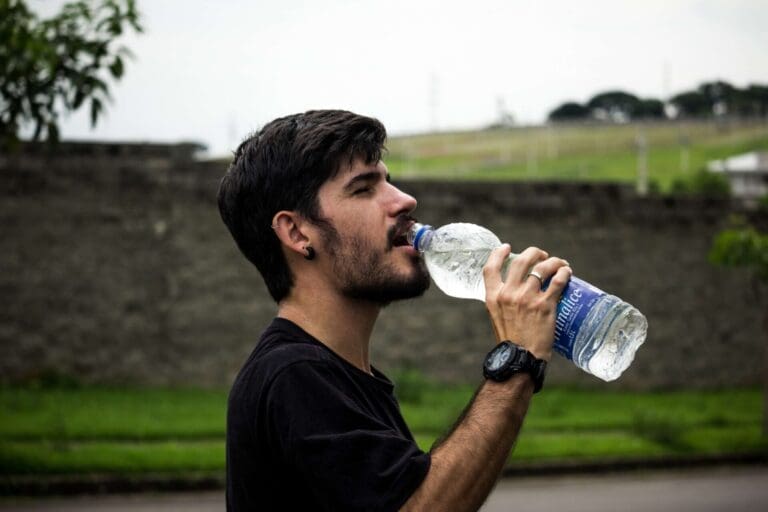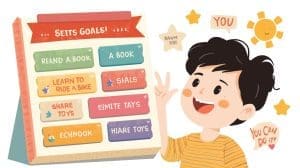
Sports Psychology Tips: 4 Steps To Form A Habit That Actually Sticks
The Art of the HABIT is fraught with difficulties but...
A habit is a routine of behaviour that is repeated regularly and tends to occur subconsciously. The American Journal of Psychology go on to define a “habit, from a psychological standpoint as a more or less fixed way of thinking, willing, or feeling acquired through previous repetition of a mental experience. Another definition of habit is “a settled or regular tendency or practice, especially one that is hard to give up.”
So why is it that forming habits are so hard? Why is it that we say we’ll will do things and then don’t follow through? I’ll let you mull that one over before reading on for ideas on how you can make sure your habits actually stick!
How to make your habits stick in 4 steps
1. Set yourself a goal. What is it that you want to achieve?
2. Using the lessons you learned from last week around goal setting, break this goal down into a series of processes that must be completed to achieve it.
IMPORTANT NOTE – The simpler the goal, the easier the habit is formed. This is due to there being less resistance (processes) between you and the goal you wish to achieve.
3. Rinse and repeat! You must have the motivation to continue executing these processes that result in achieving the goal regularly.
4. Now, this is the step you’re missing out. Consistently execute this behaviour in response to the same trigger.
What do I mean by this? Habits are learned behaviours you perform unconsciously. A trigger initiates a behaviour that you perform automatically, which snowballs into many behaviours occurring (processes) that lead to your end goal being achieved.
Example: If you’re trying to form a habit of eating healthy, an example of a trigger could be sitting down to watch TV in the evening, and the behaviour you currently associate with this is eating an unhealthy snack. However, if we can adjust the behaviour that’s associated with this trigger to something such as drinking a cup of tea, we can help ourselves in the pursuit of that habit.
Therefore, control your initial response to a trigger, and you can control your habits!
How to Stick to a Habit
You have just come in from a long day at work, you’re tired, hungry, and irritable from the commute. This is enough motivation for you to pop something easy in the microwave, put your feet up, watch love island, and pass out on the sofa. Sound familiar?
And I don’t blame you, I have been there! When we have had a rough day, we can happily go with the easier option, which isn’t the habit we are trying to form. That’s because there is a lot of resistance to work through in order to even initiate the first behaviour that will lead to you executing your habit of eating healthy and going to the gym.
You have entered the war zone without the correct mental skills in your arsenal. This is where ‘if-then’ planning comes in. “IF I come in from work tired, THEN I will go cut up some veg”. As simple as this sounds, when done repeatably in the same context a habit will begin to form, and your goal of eating healthier will be achieved.
We could even take this a step further and have our chopping board and knife left out for when we get in from work, with your gym clothes and trainers at the front door. This will reduce the resistance that stands between you and your goals, whilst making the habit less complex and thus, easier to form.
The Secret to Michael Phelps’ Success
Michael Phelps and his coach, Bob Bowman, used this trick for years to prepare him for Olympic success. Phelps would sit down before a competition and rigorously go through scenario’s that ‘IF’ they occur, he ‘THEN’ had a plan to cope with them. Whilst Bowman would regularly test his ‘THEN’ responses in training, by artificially creating ‘IF’ scenarios so that he could regularly practice his response in context.
Below is an example of ‘if-then’ planning. Use this table format to formulate your own ‘IF’ scenarios and ‘THEN’ responses. I have provided some examples to get you started.
Opportunity/Obstacle (IF…) | More Helpful Response (THEN…) |
If I am going out for food… | …Then I will go to a restaurant where they disclose their calories. |
If I am lying in bed… | …Then I will pick up my book |
If it is 7am… | …Then I will go to the gym |
If I want to snack whilst watching TV in the evening… | …Then I will make a cup of tea/drink water/eat a 10kcal jelly |
You now have the psychological tools to form habits that will help you achieve your goals!
Feel free to get in touch and let us know what habits you intend to form in future and let us know an example of one ‘if-then’ plan you will put in place to help you achieve this goal.
If you would like a copy of the ‘if-then’ planning template too, please do drop Robin and the team an email.
You could also join us at The Sports Psychology Hub to learn more about Sports Psychology and Mental Performance Coaching.

Best Wishes
Robin Hughes
Mental Skills Performance Coach and Sports Counsellor located near Chelmsford, Essex, UK supporting athletes worldwide with Online Sports Psychology Services.
Inspiring Sporting Excellence Content Creator: For powerlifters, bodybuilders, fitness enthusiasts and combat sports athletes.







